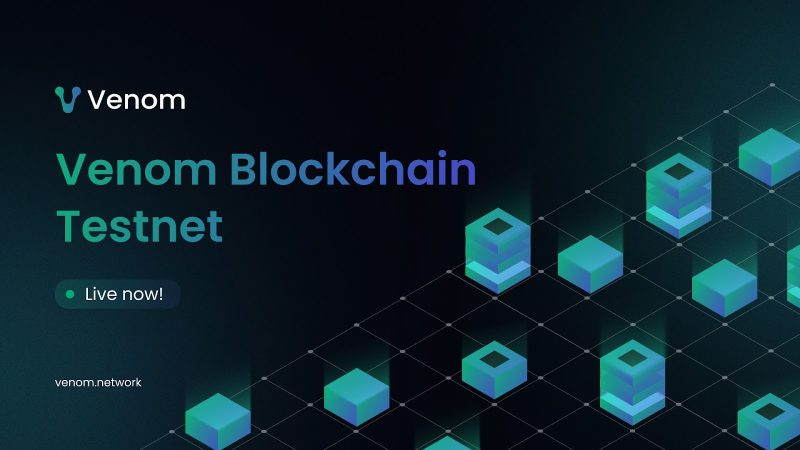- The testnet allows developers and users to test dApps and bugs.
- Users will have to connect to the Venom Wallet and claim free testnet allocation to participate.
- dApps that can be tested include Venom Scan, VenomPools, Venom Bridge, Venom Stake and Web3.World
Venom Foundation, a decentralised network aimed at accelerating Web3 development and which is licensed by the Abu Dhabi Global Market (AGDM), has announced the public testnet for its Layer-1 blockchain.
Venom is designed as a highly scalable blockchain infrastructure supporting all types of decentralised applications. According to the foundation, the testnet going live marks a key milestone for the L1 ahead of its mainnet launch.
Other than the testnet, Venom has also released multiple decentralized applications (dApps) developed in-house as part of the L1’s growing ecosystem.
“We’re excited to announce the launch of Venom’s public testnet, a crucial step towards our upcoming mainnet launch. With our highly scalable and reliable asynchronous blockchain, we’re confident that developers will be able to build innovative dApps, while users will be able to experience them firsthand,” Peter Knez, the Chair of the Venom Foundation Council, said in a press release.
Users can test various dApps
With the launch of the testnet, both ecosystem users and developers on the Venom network can now proceed to test and debug various protocols and dApps.
To access the testnet, users have to first download the Venom Wallet – which is available on mobile (in the Apple App Store and Google Play Store) and desktop as a Chrome extension. Once they claim a free testnet allocation, developers and other ecosystem users can begin to test-strain the network.
dApps that users on the Venom testnet can look to experience include Venom Wallet, Venom Scan, VenomPools, Venom Bridge, Venom Stake, Web3.World, WeUp, NFT Mint and Oasis.Gallery.
The Venom Foundation says the program should boost community building and further innovation within the ecosystem.
The post Venom Foundation announces public testnet of its L1 blockchain appeared first on CoinJournal.





